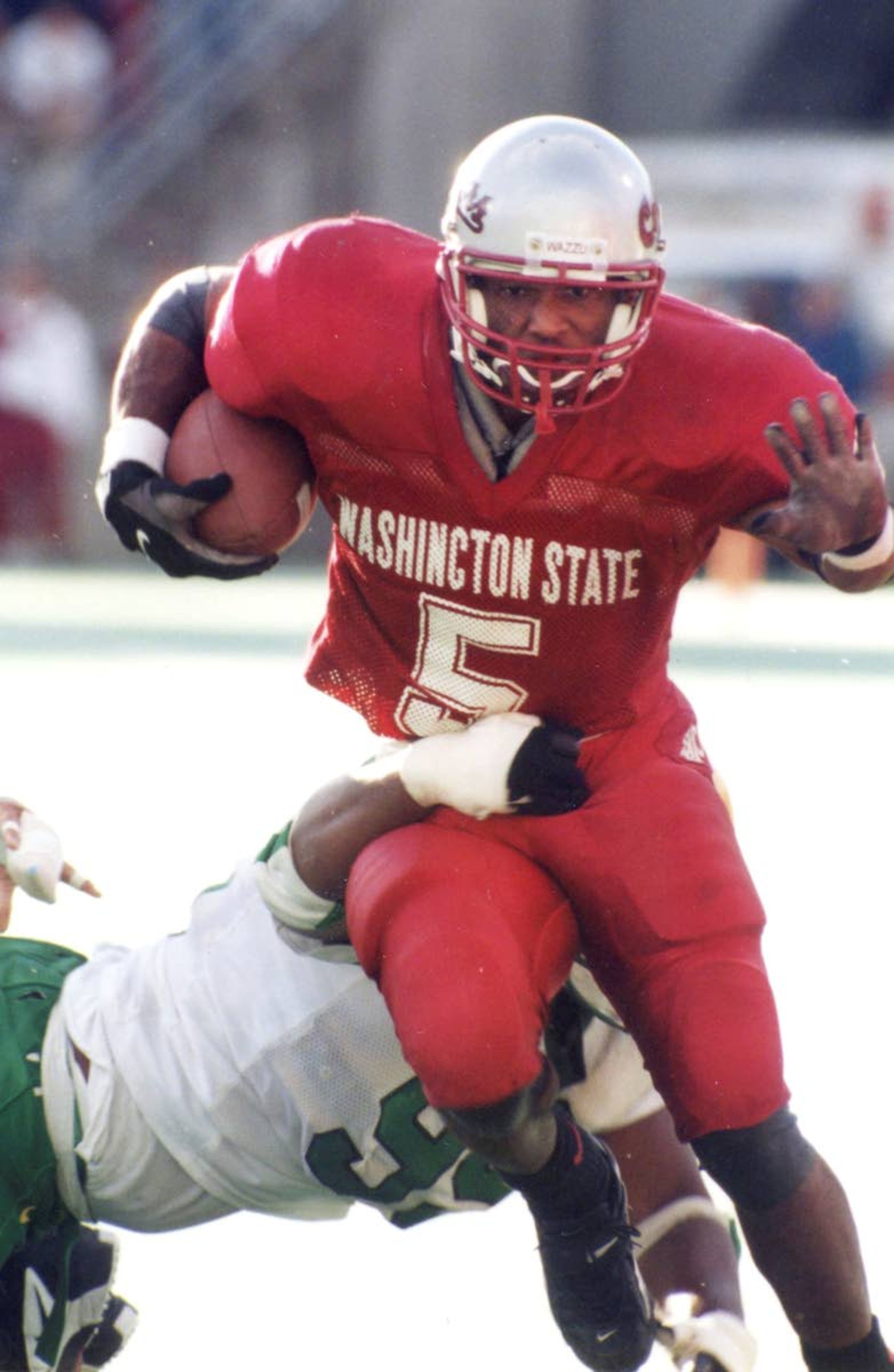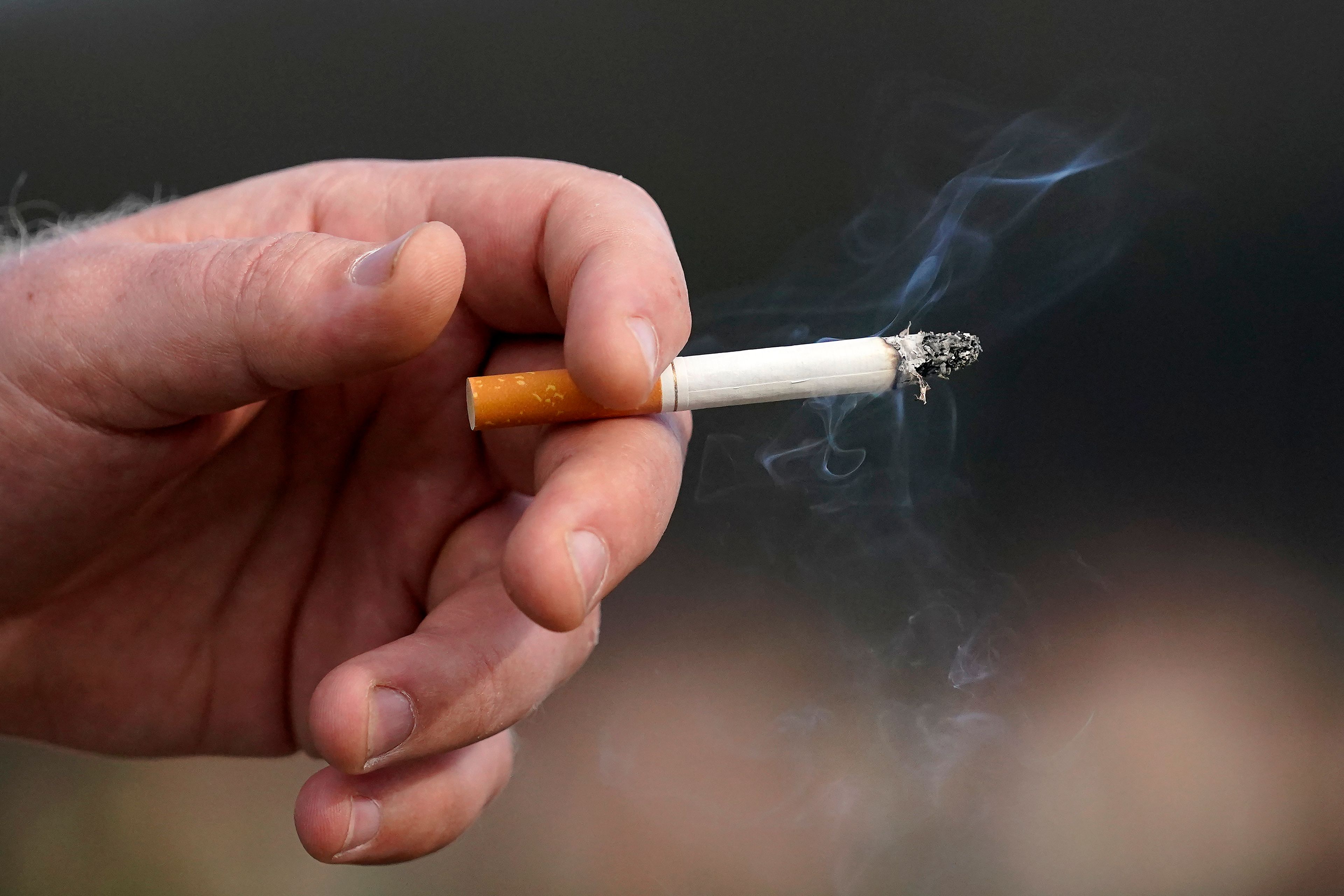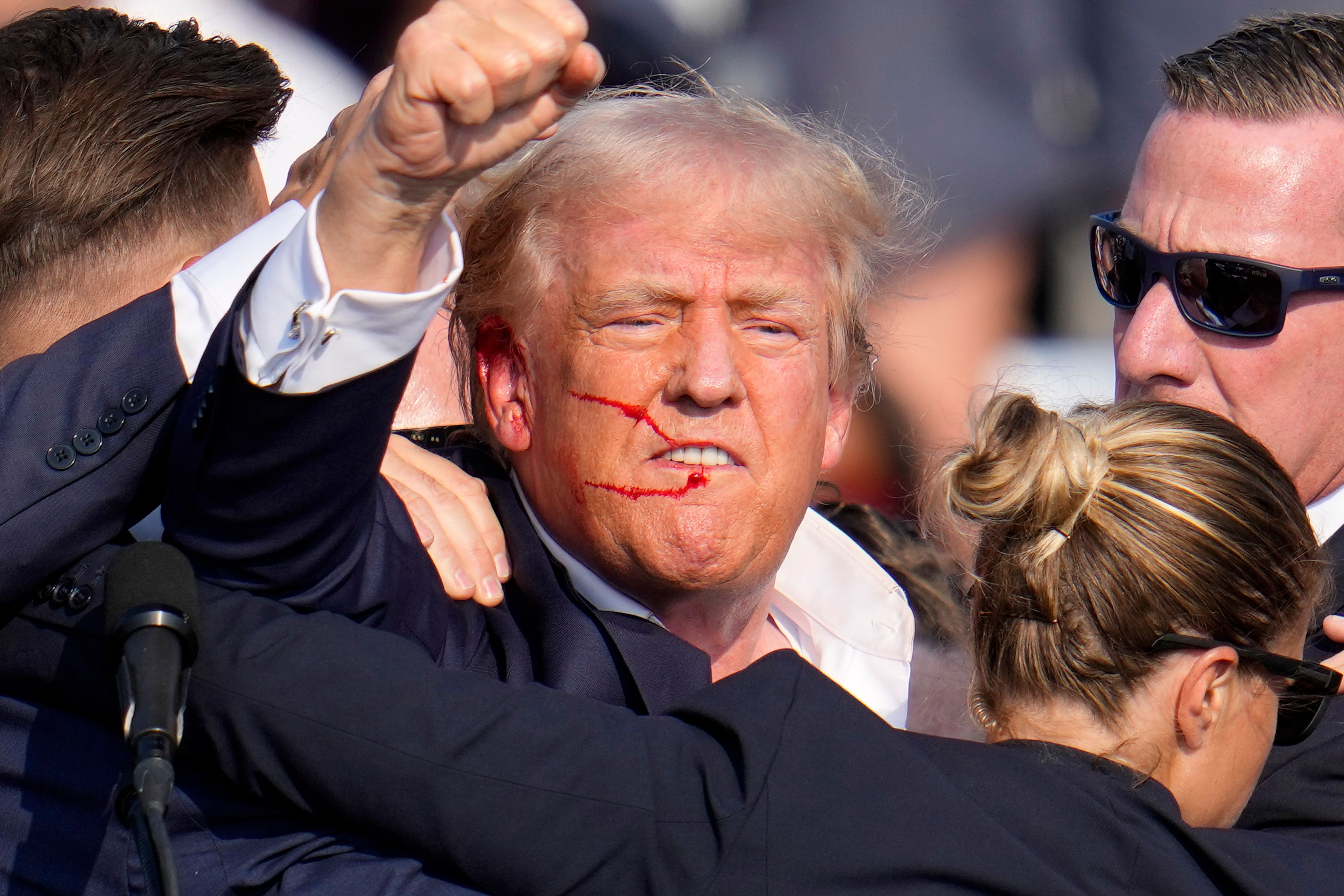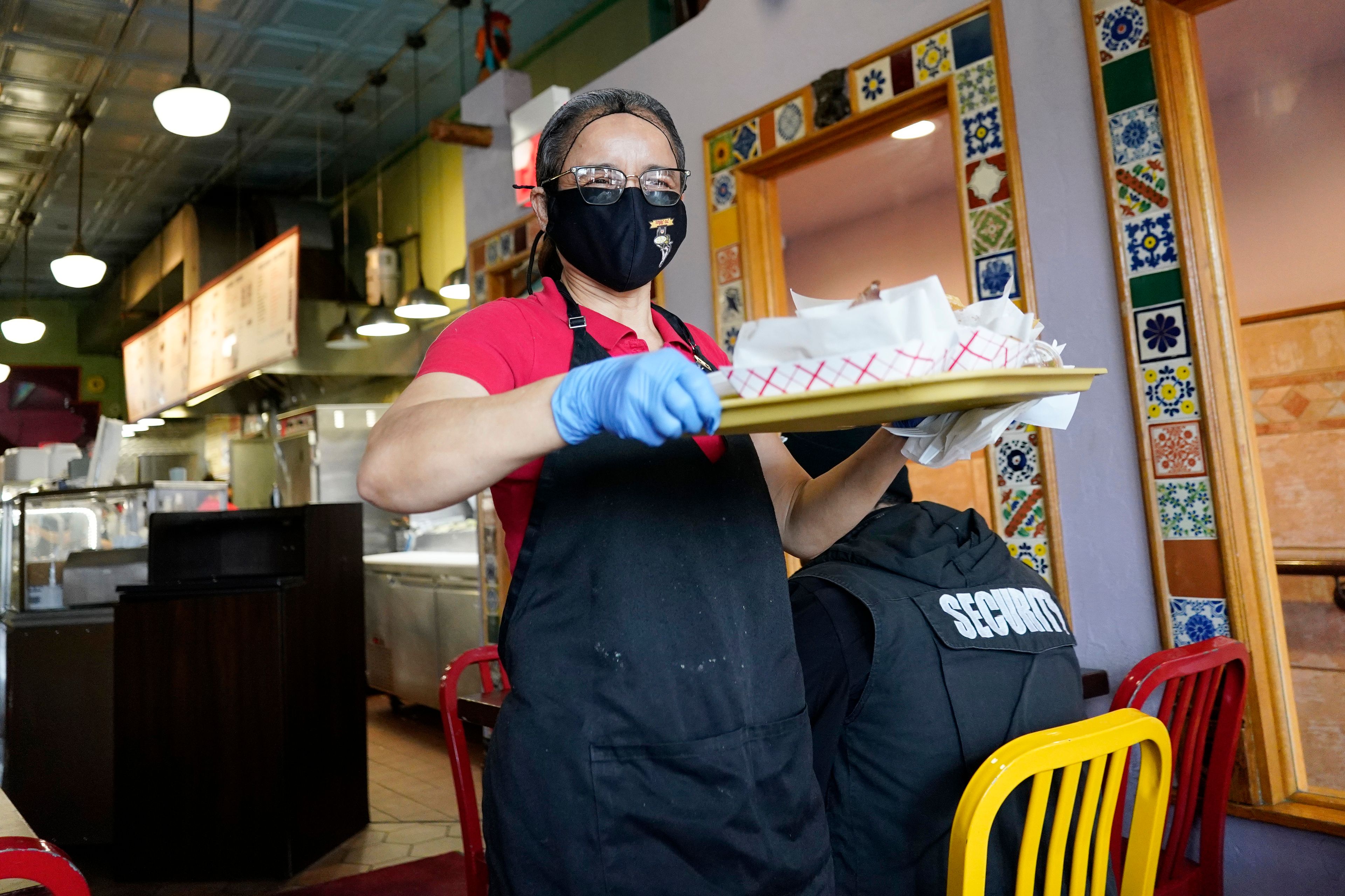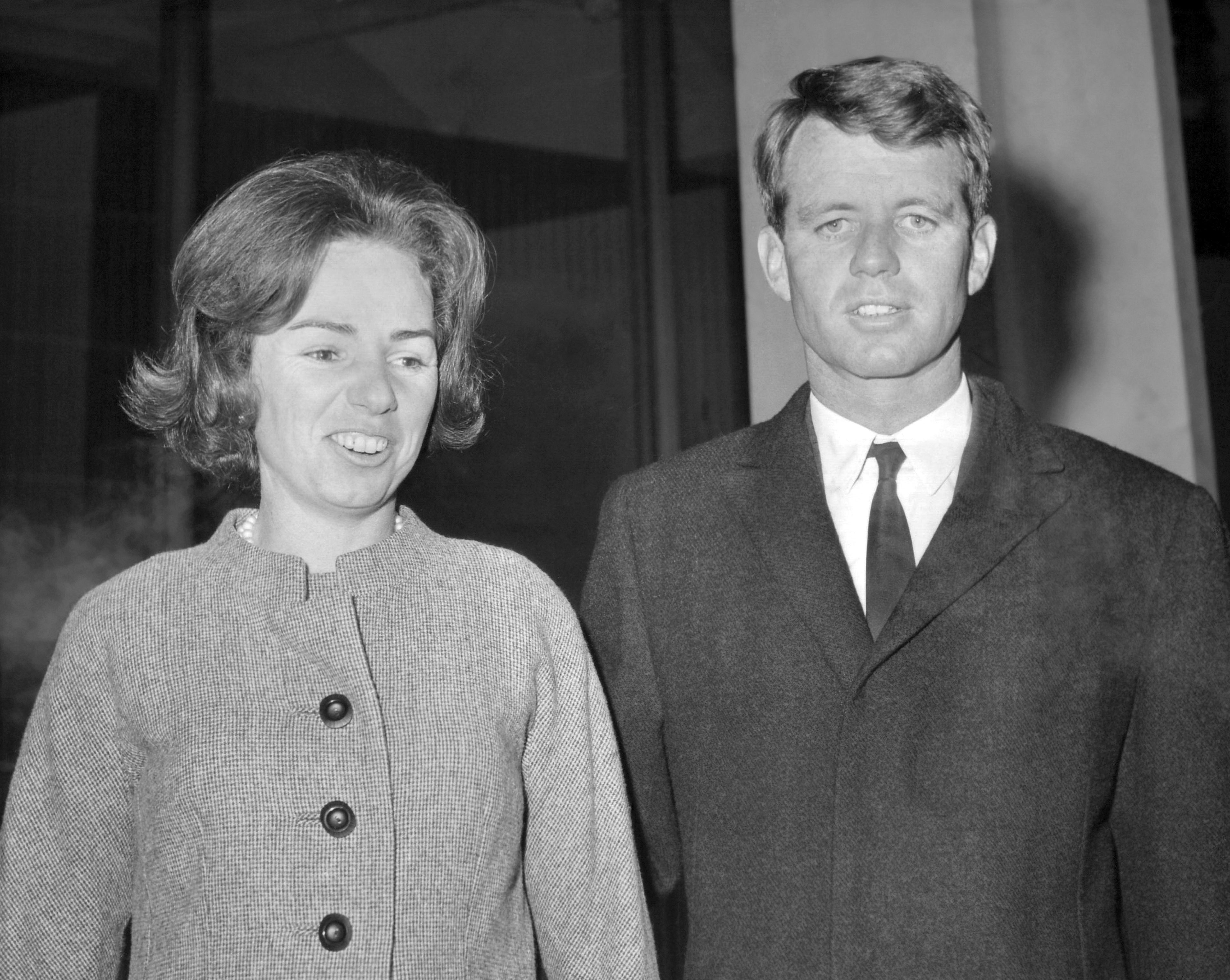Then & Now: Running with a good crowd
Black transcends tough environment, checkered past as Cougs’ newest star
Then: This story originally ran Sept. 26, 1996, in the Lewiston Tribune.
PULLMAN — When Michael Black was 14, he had a transportation problem. He lived in South Central Los Angeles, and his girlfriend, Mekia, lived out toward Inglewood.
Like many a South Central boy in need of wheels, he resorted to a “smoker’’ — which you might say is the inner city’s version of Rent-a-Wreck. You find a middle-aged crack addict in need of $10 or $15, and you rent his car for a few hours.
But the enchanting Mekia lived on a rugged street, crawling with police, and Black wasn’t very lucky in those days. He would try to cruise past, slow and cool, but he was young-looking and black and kept getting pulled over.
The cops would ask him who owned the car, and all he could say was “Wallace’’ — the smoker’s nickname. He never learned Wallace’s real name. So he’d get hauled to the station, charged with grand theft auto.
To Black, these incidents are a hazy memory, vestiges of a previous life. He is now a father, a junior-college survivor, and Washington State’s man of the hour.
Four Northwest newspapers were planning feature stories on the junior running back this week after his 161-yard rushing effort in WSU’s 55-44 victory over Oregon. If his major-college debut at Colorado on Aug. 31 had raised questions about his size (5-foot-11, 196 pounds) and talents, his tackle-breaking, stutter-stepping performance Saturday went a long way toward answering them.
He is getting accustomed to questions. After a successful career at West L.A. College (1,563 yards as a freshman), he committed to the University of Arizona last fall, but the Wildcats then asked about his past. Black chose to be honest, and Arizona shied away.
USC, stocked with running backs, asked him to play safety, but Black thought he was worthy of being a Trojan tailback. The Texas Longhorns were interested, but too far away. Other schools lost patience when Black needed an extra semester to graduate from West L.A.
That left Washington State.
“Others maybe didn’t stick with him, and the Cougars did,’’ WSU coach Mike Price says. “We ended up getting a real good one.’’
In some ways, Black was never a typical inner-city kid. He ran the streets, but the gangs didn’t interest him. He enrolled in gymnastics classes, developing an agility that is now evident on the football field and at the diving board at Gibbs Pool.
“He’s a competitive guy — in everything. He won’t let a person cut in front of him,’’ says his roommate, wide receiver Kevin McKenzie. “He won’t settle for second-best.’’
Independent by nature, Black sees a clubbishness on campus that he compares to the gang mentality of his old neighborhood.
“People join these fraternities because they want to be accepted or cool,’’ he says. “I’m 22. If I didn’t need them then — if I didn’t need to join this gang at home — what do I need with this fraternity? Y’all can have your dances and put up your signs. That’s cool. But I want people to accept me for who I am.’’
His sophomore year in JC, followed by his year of limbo, solidified this attitude. Twenty-one months ago, he became the father of a boy, Caelin, a Nigerian name that according to Dad means “The Mighty One.’’ He found the name while browsing in a Beverly Hills bookstore.
Last year, while Black finished up his JC work, he led a typical father’s life, buying infant clothes and working construction. The boy’s mother, a Cherokee Indian named Makana Patton (Black himself is one-quarter Cherokee), still lives in Los Angeles with Caelin.
What bothered some recruiters, apparently, was Black’s lengthy record of dropped charges at the L.A. Police Department. In addition to the grand-theft misunderstandings, which were explained away quickly enough, there was an incident when he was 9, when he and some friends broke into an elementary school — tossed a few chairs around, shattered an exit sign.
“Not many kids there know wrong from right,’’ says Black. “If these schools in the Pac-10 or anywhere else expect to come to California and recruit on goodness, they might as well not even come here. I’m pretty sure that 99 percent of us have done something, been in trouble.’’
The police record was less worrisome to WSU running backs coach Buzz Preston, who is from Los Angeles.
“If you look at him academically, he’s a good student,’’ Preston says. “I knew people who knew him. They assured me, and his coaches assured me, that he had just made some mistakes. It was poor judgment on his part.’’
Says Black, “I think it was just meant for me to come here.’’
That’s a typical statement by a WSU recruit. The Cougars can’t offer sunshine, large-market media attention or, in this case (Preston has a policy against it) promises of stardom. All they offer is fate.
---
Now
Michael Black rushed for 1,181 yards for the 1997 team that claimed WSU’s first Rose Bowl berth in 67 years. He spent two seasons on the Seattle Seahawks practice squad and is now a radiologist in the Phoenix area. He and his wife, Stacha, have a daughter, Sky, a high-school senior looking to attend a school in the University of California system.
